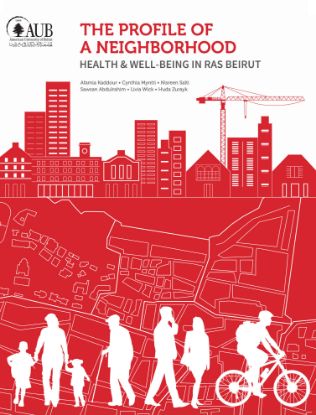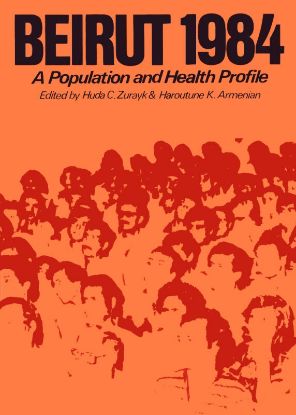Filter by price
Products tagged with 'huda zurayk'
The Profile of a Neighborhood: Health & Well-Being in Ras Beirut
The Profile of a Neighborhood presents an overview of the findings of the Ras Beirut Well-Being Survey, conducted in 2009–2010 by members of AUB's Faculty of Health Sciences. It represents the efforts of a multidisciplinary team drawn from across the American University of Beirut, and provides the first systematic portrait of Ras Beirut in the last forty years. The survey's goal was to provide up-to-date sociological, demographic, and health information about neighborhood residents, a valuable snapshot of life in Ras Beirut shortly before the conflict in Syria brought an influx of Syrian citizens to the neighborhood. The book presents a wide variety of statistical details about the residents of Ras Beirut, including marital status, nationality, household structure, religiosity, income and household wealth, education, and quality of life. Its findings suggest that even in Ras Beirut, which is considered an affluent neighborhood of which AUB is a part, it is possible to find extremes existing side by side—wealth and poverty, social and economic inequality, and the corresponding effects on well-being.
$12.00
Beirut 1984: A Population and Health Profile
This book incorporates the descriptive findings of a survey conducted by the Faculty of Health Sciences at the American University of Beirut as part of its efforts to establish a population laboratory in the city of Beirut. The Lebanese Civil War led to the disintegration of the crude health information system available prior to that time; thus this survey generates a unique dataset about a city and its population at a midpoint in the war. By recording the methodological and organizational issues faced during the war, the book serves as a reference source for courses and other training activities in health research. Its findings will interest public health workers, ministries of health, and the staffs of a variety of international agencies.
$10.00


